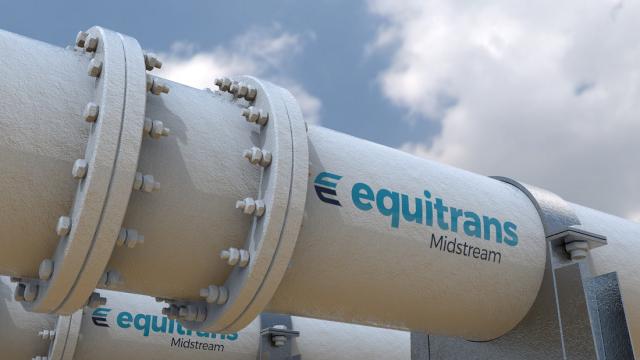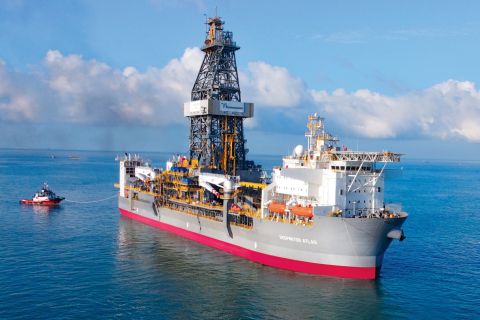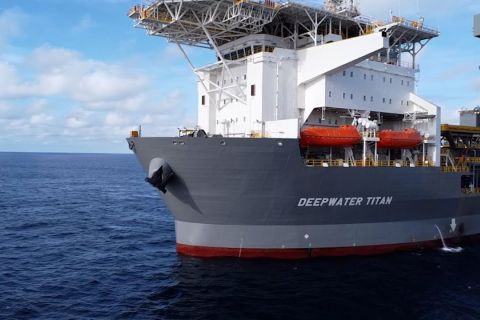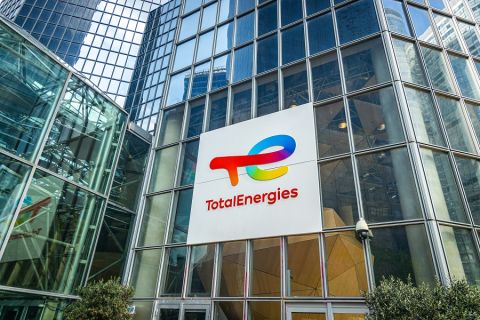
Despite sluggish second-quarter earnings, Equitrans Midstream expects completion of its Mountain Valley Pipeline by year-end. (Source: Shutterstock)
Equitrans Midstream (ETRN) leaders expressed confidence during their second-quarter earnings call that construction of the long-awaited, long-disputed Mountain Valley Pipeline (MVP) will be completed by the end of the year. The upbeat forecast marked a contrast with flat second-quarter earnings, the Pennsylvania-based company announced on Aug. 1.
“It’s been a long and challenging journey for MVP,” chairman and CEO Tom Karam told analysts. “While we don’t expect the opposition to give up, we have the highest degree of confidence that we will complete the project.”
The 303-mile MVP route cuts north-south through the center of West Virginia and heads southeast, crossing into Virginia. The line was designed to transport gas from the Marcellus and Utica shales in the upper Midwest and Northeast to the mid-Atlantic and Southeastern U.S., opening a significant path for natural gas to a growing area.

Obtaining the necessary permitting took an act of Congress and action by the president and the Supreme Court. Environmental protests and court filings have sporadically halted construction on the pipeline reaching back to 2018. Most recently, the Fourth Circuit Federal Appeals Court in Richmond, Virginia., halted construction in July. The Supreme Court reversed the appeals court decision on July 10.
Congress had already been involved. A bipartisan agreement to limit further judicial review of the project and expedite the remaining permitting and construction process passed on Capitol Hill, while President Joe Biden signed the agreement, part of the Fiscal Responsibility Act, in early June.
Several environmental groups said that Congress and the president had overstepped their boundaries with the legislation and planned to continue fighting the project.
The pipeline project was initially slated to cost around $3.5 billion, but delays and permitting costs have driven the estimate to $6.6 billion. Equitrans plans to complete construction by the year’s end, and the estimate includes time lost to bad weather.
“Absent some of those extreme conditions, we’re fairly confident that we’re going to bring MVP into line around year-end,” Karam said. The pipeline is expected to have a capacity of around 2 Bcf/d.
Humdrum quarter
Second-quarter revenue came in at $318.47 million, down 3.1% compared to last year’s second quarter and 2.03% below the consensus estimate. The stock price reflected the result, trading at a one-year high of $10.37 on July 31 before falling to $9.77 at the close of trading Aug. 2, the day after the earnings announcement.
Over the last quarter, the company gathered about 7.4 Bcf/d and executives said they expect volume to remain flat for the remainder of the year. However, once MVP is online, the company anticipates a stronger market position.
“From an operations perspective, our systems provide the only direct upstream connectivity to MVP, making our assets well-positioned to benefit,” said Diana Charletta, president, COO and director.
The MVP pipeline will factor heavily into Equitrans’ upcoming financial decisions. Once MVP is in service, the company will deal with project-level debt.
Company leaders did not discuss the possible further expansion of the pipeline, called the MVP-Southgate, which would extend the conduit’s footprint into North Carolina.
Several other projects for Equitrans, one of the largest midstream companies in the U.S., are also moving forward.
The Ohio Valley Connector Expansion (OVCX) project received certification from the Federal Energy Regulatory Commission on June 15 and received the final authorization from the U.S. Army Corps of Engineers on July 27.
OVCX is a $160 million project adding about 350 MMcf/d to the Ohio Valley Connector pipeline, providing access to the Midcontinent and Gulf Coast markets. The incremental capacity is targeted for in-service in the first half of 2024.
Overall, for the second quarter of 2023, Equitrans reported $68.9 million of net income and generated $298.6 million of net cash from operating activities, including $150.7 million of free cash flow.
Recommended Reading
E&P Highlights: March 4, 2024
2024-03-04 - Here’s a roundup of the latest E&P headlines, including a reserves update and new contract awards.
Rystad: More Deepwater Wells to be Drilled in 2024
2024-02-29 - Upstream majors dive into deeper and frontier waters while exploration budgets for 2024 remain flat.
E&P Highlights: Feb. 26, 2024
2024-02-26 - Here’s a roundup of the latest E&P headlines, including interest in some projects changing hands and new contract awards.
After 4Q Struggles, Transocean’s Upcycle Prediction Looks to Pay Off
2024-02-21 - As Transocean executives predicted during third-quarter earnings, the company is in the middle of an upcycle, with day rates and revenues reaching new heights.
Cronos Appraisal Confirms Discovery Offshore Cyprus
2024-02-15 - Eni-operated block partner TotalEnergies says appraisal confirms the presence of significant resources and production potential in the block.




